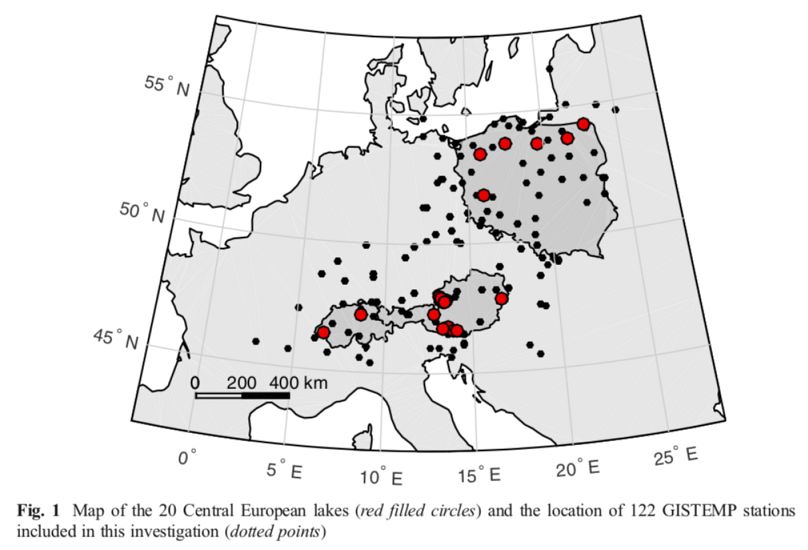Copernicus to help tourism industry adapt to climate-related shifts in holiday destinations and seasonality.
 ADVERTISEMENT
ADVERTISEMENT
 ADVERTISEMENT
ADVERTISEMENT
The Mediterranean is a very popular destination in Europe during the summer season, but an increased occurrence of heat waves, wildfires and heavy storms, as those experienced in the last couple of years, may alter its attractiveness in the future.
In the Alps, on the other hand, climate change may start challenging the popular belief that the Alpine lakes and mountains are often a cold and wet experience during summer. Climate projections show that average temperatures will rise, particularly in areas over 1.500 meters and Alpine lakes’ water surface temperatures are anticipated to warm another 1 degree Celsius by 2050 and a total of 4 to 5 degrees Celsius by the end of the century.
With a better climatic suitability for tourism activities, the Alps may attract in the coming years a wider range of tourists looking for warm but not too hot summer holidays.
Copernicus to provide new tools for a better understanding of climate impact on tourism industry
Climate projections as well as seasonal forecasting of meteorological conditions are particularly important for many tourism activities. Climate change alters the frequencies of suitable and non-suitable meteorological conditions and may therefore lastingly affect the competitiveness and seasonality of holiday destinations. Short-term seasonal forecasting is also critical for the tourism sector as holidaymakers are mainly choosing their destination, time of travel and activities according to expected weather patterns and climate variables.
The Copernicus Climate Change Service commissioned Marseille-based TEC Conseil to develop by March 2019 an operational user-driven climate information system for intermediaries, tourism companies, policy makers and other users, based on information from the Climate Data Store. It will provide various critical indicators and indexes such as the Holiday Climate Index (HCI) combining temperature, relative humidity, precipitation, cloud cover and wind, or the Lake Water Surface Temperature (LSWT), to help the tourism industry shape marketing strategies, plan future investments in the context of a changing climate and inform the selection and planning of events.
“In a quickly changing climate, it is crucial to be informed in time of the appropriateness of future conditions for a range of activities in order to plan your next holidays,” says Carlo Buontempo, Sectoral Information System Manager for the Copernicus Climate Change Service, implemented by ECMWF. “The indicators we developed will assist the tourism industry with forward planning, for example, in terms of the start and finish of the season, promotional campaigns, event scheduling, staffing levels...”
Lake Surface Water Temperature, an essential climate variable for tourism industry, particularly in the Alps
Lake water temperature is an important driver of lake ecosystems and has been identified as an indicator of climate change: observing the surface temperature of lakes can serve as an indicator for regional climate monitoring. Lake Surface Water Temperature is of key interest for modelling purposes as it can be assimilated in numerical weather prediction models to make regional forecasts more precise. These forecasts will allow the tourism industry to better adapt to planned meteorological conditions, not only for bathing and water sports but for a wide range of Alpine summer sports such as hiking, mountain biking or paragliding...
A dedicated study using a combination of in situ and simulated surface temperatures from around 20 Central European lakes, with data spanning between 50 and ∼100 years investigated the long-term increase in annually averaged LSWTs. Besides a significant rate of warming for each of the studied lakes, a clear seasonal pattern emerged with peak lake surface water temperature warming in late spring, which could lead to an extended approach of the tourist season, traditionally focused on July and August, for the Alpine lakes.
A complete range of services using Copernicus data to inform industry professionals and tourists
The aim of Copernicus is to address the various climate data and applications needs of the European tourism sector for a highly diverse set of users, including intermediaries (such as consultancy companies or environment agencies), businesses (such as tour operators or investors in tourist infrastructure and services), destination managers, tourist associations and policy makers.
In addition to the Lake Surface Temperature Index, the Holiday Climate Index (HCI) is a more complete meteorologically based index of climatic suitability for tourism activities combining temperature, relative humidity, precipitation, cloud cover and wind. The Holiday Climate Index can help shape long-term marketing strategies and plan future investments under a changing climate. In combination with seasonal forecasts, the index can also help shape short-term marketing strategies and inform about the appropriateness of future conditions for a range of activities, and consequently to assist with forward planning, for example, of start and finish of season, promotional campaigns, event scheduling, staffing levels, etc.
The service will also deliver an interactive web-interface with pan-European data as well as potential alternative applications (e.g. monthly email alert). A web portal tourist dashboard will allow users to the most relevant climate indicators for the tourism sector and different types of areas (rural, mountainous, urban, coastal): Holiday Climate Index and lake temperature, but also sea level rise, snow reliability, forest fires, etc.
A set of download functions or tools for downscaling and bias correction, to adapt each indicator to specific needs of any organization will be accessible through the Copernicus Climate Data Store toolbox including Climate information for different timescales such as past climate, seasonal forecasts and future climate-projections.
For more information on dedicated Tourism Information System provided by Copernicus Climate Change Service:
https://climate.copernicus.eu/copernicus-climate-data-boosts-europes-tourism-sector-0


